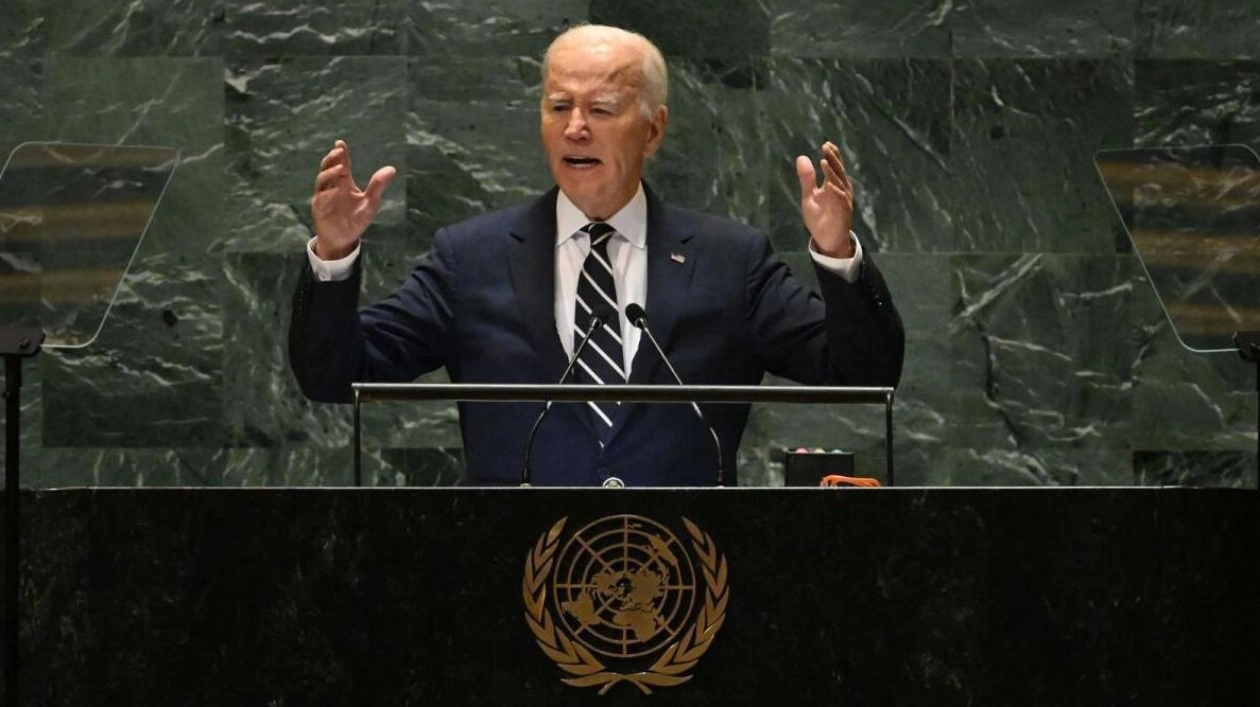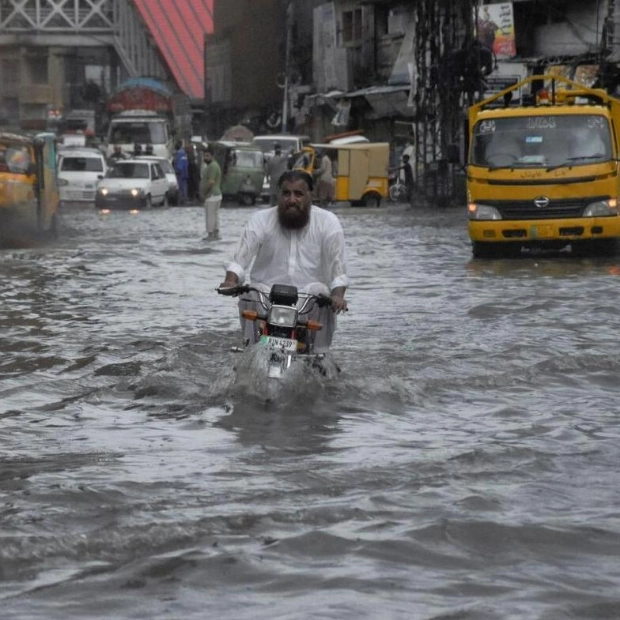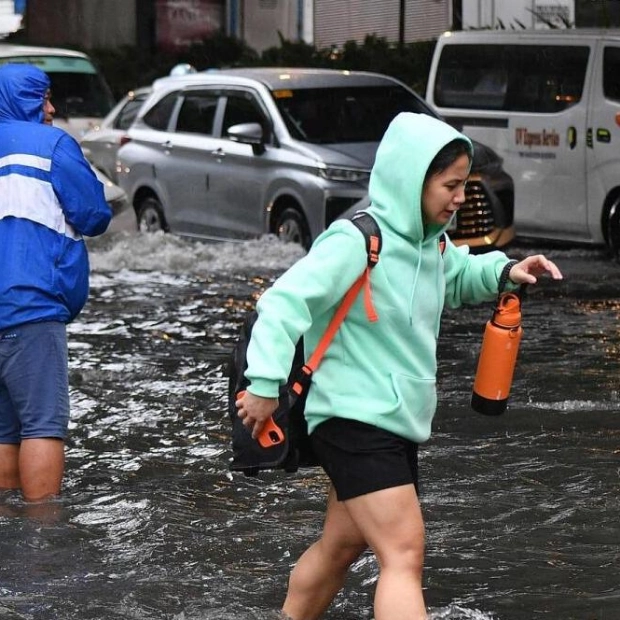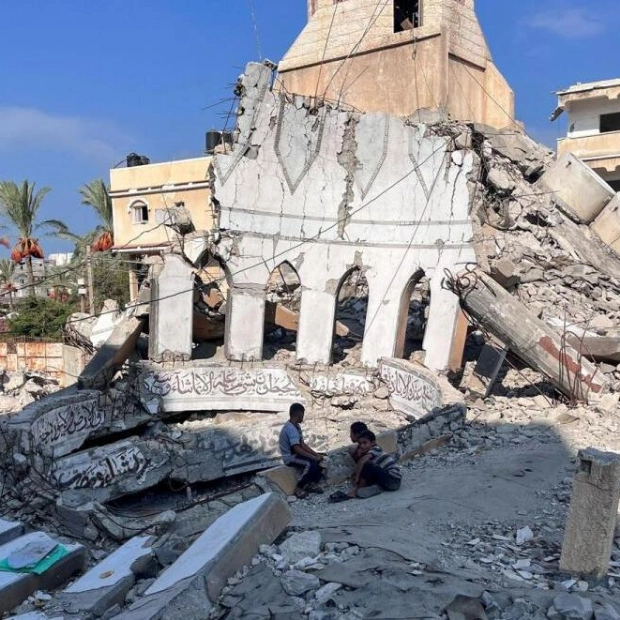World leaders gathered at the United Nations on Tuesday, urging Israel to avoid a full-scale war in Lebanon, as the UN chief warned that the situation was teetering on the edge. The UN General Assembly, a pivotal event in the international diplomatic calendar, took place after Lebanese authorities reported that Israeli strikes had claimed the lives of 558 people, including 50 children.
"A full-scale war is not beneficial to anyone. Despite the escalation, a diplomatic resolution remains feasible," US President Joe Biden stated in his address to the global body. "In truth, it is the sole route to enduring security, enabling residents from both nations to return to their homes along the border safely," Biden added, just before an emergency UN Security Council session on Lebanon was scheduled for Wednesday.
Biden's comments were met with disappointment by Lebanon's Foreign Minister Abdullah Bou Habib, who deemed them "unpromising" and unlikely to resolve Lebanon's issues. He estimated that the number of displaced individuals due to Israel's strikes had likely surged to half a million.
"We should all be concerned about the escalation. Lebanon is on the brink," UN Secretary-General Antonio Guterres declared as he opened the assembly. Israel's Ambassador to the UN, Danny Danon, stated that his country was not keen on a ground invasion of Lebanon. "We do not wish to send our soldiers to fight in a foreign land," he said.
The prospects for defusing the situation in Lebanon remain uncertain, especially given the failure to broker a ceasefire in Gaza, where Israel has been relentlessly attacking since October 2023. Biden reiterated his call for a ceasefire between Israel and Hamas, urging the global body to "end this war." Mediator Qatar accused Israel of hindering ceasefire negotiations in Gaza, with Amir Sheikh Tamim bin Hamad Al Thani asserting that "there is no Israeli partner for peace" under Benjamin Netanyahu's government. However, he pledged to continue efforts to resolve disputes through peaceful means.
Turkish President Recep Tayyip Erdogan accused Israel of plunging the entire region into conflict. "Not only children but also the UN system is perishing in Gaza," Erdogan stated in a harsh speech. Guterres warned against turning Lebanon into another Gaza, describing the situation in the Palestinian territory as a "never-ending nightmare." European Council President Charles Michel affirmed that Israel had the right to exist and defend itself but should avoid inflicting "collective punishment" on civilians in targeted areas.
Iran's President Masoud Pezeshkian, who supports Hezbollah in Lebanon and Hamas in Gaza, condemned the UN's "senseless and incomprehensible" inaction against Israel. British Foreign Minister David Lammy expressed deep concern over the escalating violence in Lebanon, stating that he feared it could spiral into a broader regional conflict. Britain announced the deployment of military units to Cyprus to assist with the potential evacuation of its citizens from Lebanon.
In response to criticism of Israel, Danon described the General Assembly debate as an "annual charade of hypocrisy." Since last year's gathering, dominated by Sudan's civil war and Russia's invasion of Ukraine, the world has witnessed a surge in crises. The October 7 attack by Palestinian group Hamas on Israel resulted in 1,205 deaths and prompted a military response in Gaza that authorities claim has killed at least 41,467 people. Militants also captured 251 hostages, 97 of whom remain in Gaza, including 33 reportedly dead, according to the Israeli military.
Violence has spread across multiple fronts in the Middle East since the crisis began, exposing deep divisions within the UN. Palestinian President Mahmud Abbas sat alongside the Palestinian delegation, which was placed in alphabetical order in the General Assembly for the first time on Tuesday after receiving upgraded privileges in May. At the podium, Jordan's King Abdullah ruled out the forced displacement of Palestinians by Israel to his country, calling it a "war crime."
Ukraine was also a key topic on Tuesday, with President Volodymyr Zelensky addressing a UN Security Council meeting on the Russian invasion. "Russia can only be compelled into peace, and that is precisely what is needed, compelling Russia into peace," Zelensky stated.






